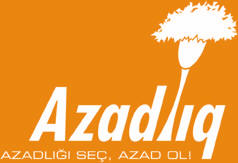
AZERBAIJAN’S RADICAL OPPOSITION ON THE EVE OF ELECTIONS
Publication: Eurasia Daily Monitor Volume: 2 Issue: 205
By:

The radical opposition bloc Azadliq (Freedom) is capturing international headlines through high decibel power and the decade-old political investment into a few of the bloc’s leaders by some Western human-rights groups. In the perception of most Azerbaijani voters, however, Azadliq leaders are indelibly associated with the turmoil of the early and mid-1990s, when they held power and failed the test of statesmanship for the entire country to see. Their overall track record while in opposition is also a discouraging one in terms of political maturity.
The Azadliq bloc is fielding candidates in 115 out of the 125 single-mandate electoral districts. Azadliq is a recent alliance of convenience among three parties. In the highly personalized politics of Azerbaijan, their respective leaders competed against each other no less than they did against the authorities during the past decade. The Democratic Party (DP), Musavat, and the Popular Front of Azerbaijan Party (PFAP).
The DP is a vehicle of the self-exiled (since 1996) former oil-industry chief and ex-parliamentary chairman Rasul Guliyev, who amassed great wealth while in power and harbors presidential ambitions. Guliyev is widely reported to finance the DP, and recently also the Azadliq bloc, from abroad and to retain some inside links to officials from the old Nakhichevan clan. Members of the Guliyev and Mamedov-Jalaloglu extended families operate the DP in Baku. When Guliyev attempted to land at Baku airport on October 17, DP vice-chairman Gurban Mamedov appealed to the people comparing the expected event with the “coming of the messiah” and promising a “place in heaven” to those who would brave the police and reach the airport to show mass support for Guliyev.
Guliyev has declared that he plans to run for president in 2008, and he treats this year’s parliamentary elections as a preparatory stage toward that goal. His allies calculate that his return to the country would spark a political crisis in which Guliyev’s wealth and old contacts would induce some official circles to switch to the opposition’s side. Such calculations seem clearly to overrate Guliyev’s abilities, however. His allies (apart from the DP itself) are presumably sincere in promising to combat corruption, but that promise meets with skepticism while they tie their own political fortunes to Guliyev. Whether this alliance is tactical or strategic is far from certain, considering the ambitions of other leaders in the Azadliq bloc.
Musavat is also a highly personalized party under Isa Gambar, its leader since 1992 and parliamentary chairman in 1992-93. Gambar and his circle do not seem interested in business or economics. In the current electoral campaign, Gambar promises to raise the salaries of public- sector employees to the equivalent of $400 to $500 monthly, if the Azadliq bloc wins the elections, and to give every family a post-election grant of 1 million manats (equivalent to $250) — untenable promises in Azerbaijan’s conditions. Gambar’s discourse is pro-Western at present (and he is a three-time visitor to Washington this year alone), but his past record on this score is less than reassuring. At one time, flirting with Tehran, he advocated routing the Baku-Ceyhan oil pipeline through Iran (instead of Georgia); at other times his party used pan-Turkic phraseology to please some circles in Ankara; and its propaganda lapsed into xenophobia in looking for hidden Kurdish and Armenian “penetration” of Azerbaijan.
Gambar was officially credited with 14% of the vote in the October 15, 2003, presidential election, and although fraudulent vote counting reduced his score somewhat, there could be no doubt that he had lost heavily. Nevertheless Gambar claimed victory, even before the official results had been announced, in an inflammatory speech from his headquarters’ balcony to the crowd below, touching off violent riots by Musavat supporters that night and the following day in downtown Baku. Quite possibly, nonpolitical criminal elements were the ones responsible for the devastation and plunder that ensued. (Gambar himself famously declared later that he was “drinking tea at home” during the riots.)
Rauf Arifoglu, chief editor of the party newspaper Yeni Musavat, was sentenced to prison for participating in those disturbances; but was later pardoned by President Ilham Aliyev, and had his conviction officially erased from the record, following international intercession to enable Arifoglu to run for parliament this year. Arifoglu had first gained notoriety in 2000 for his newspaper’s sympathetic coverage of the hijacking of a passenger airplane by a Musavat activist, who aired his political demands to Arifoglu by cell phone during the hijacking. Recast as a devout Muslim for this year’s election, Arifoglu is running in the Sabuncu district, where Nardaran — Azerbaijan’s unique hotbed of Shiite Islamist opposition — is located. The Islamic Party leader Haji-Aga Nuriyev is a candidate (albeit not on that party’s behalf) in that district as well.
The PFAP has also become a leader-oriented party around Ali Kerimli, particularly since Kerimli’s close associates of many years, parliamentary deputies Asim Molazade (see below) and Alimamed Nuriyev, quit the party before the start of this campaign. Kerimli was a deputy chairman of the old Popular Front in the 1990s, and PFAP became one of the Popular Front’s proliferating splinters. Of all opposition groups in Azerbaijan, PFAP leaders received the most intensive exposure to the West in terms of personal access and mentoring. Critics, including those within the opposition, have commented that the PFAP leader has campaigned in the West more than he has in the country. Nevertheless, Kerimli — now personally responsible for the party’s image — seems prone to uncontrolled outbursts. In a statement during this campaign, he criticized the authorities for putting up with the presence of 30,000 Armenians in Baku. (It is common knowledge that thousands of Armenians, mainly women in mixed marriages, still live in Baku, tolerated by the state authorities who are doing their best to hush up the issue and avoid any trouble).
Kerimli has also allowed his opponents more than once to drag him down to their own undignified level when they orchestrated vulgar questions about his manhood. In a widely publicized outburst during this campaign, he challenged all concerned to bring their wives to him for conclusive proof on the issue. Such a reaction can perhaps be rationalized in a human and cultural context, but it also showed again that this would-be national leader could overreact emotionally under provocation. The selection of personnel at PFAP headquarters also seems questionable, judging from the case of Ruslan Bashirli, leader of the Yeni Fikir [New Thinking] youth group of would-be “orange revolutionaries.” Bashirli, a Kerimov relative, and his deputy were videotaped, apparently as a sting operation, in the act of receiving undeclared cash for their organization and planning naively aloud to spend the cash for personal enjoyment. The PFAP fiercely defended its youth group’s leaders, instead of disciplining them.
(Survey based on election campaign coverage by the ANS, Turan, Trend, and AzerTaj news agencies and the ANSTV and ITV channels, as monitored by BBC’s Global Newsline, September-October 2005)




